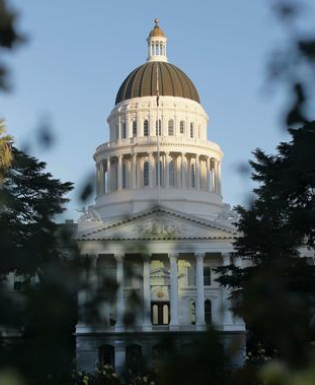 By Chris Micheli
By Chris Micheli
Managing a successful government affairs program requires managing multiple component parts of an organization focused on advocating the interests of a company, labor union, or trade association. It is similar to being the campaign manager of a political campaign or the coach of a football team.
In other words, it requires overseeing and coordinating all aspects of the government relations effort for the organization. For example, it may require that you manage one or more in-house lobbyists, as well as analysts and others who support the direct lobbying activities of the organization.
It may also require managing contract lobbyists, as well as those who support the advocacy efforts such as those engaged in grassroots support, public affairs or public relations, and even campaign expenditures, such as through a political action committee. These contracted workers must be hired for their expertise and level of service, as well as to fulfill the needs of the lobbying efforts.
Determining how to deploy in-house and contract lobbyists is always a critical role for the government affairs program administrator. Understanding the strengths and weaknesses of those on your lobbying team is required because that will be key to how these individuals should be utilized.
In determining which lobbyists to use, pose some of these questions: What policy expertise do they have? Which political connections do they maintain? What skills are needed? What type of personality is required to deal with decision-makers or opponents?
Overseeing the grassroots and media teams is also a critical role because of the need to understand how the public relations and grassroots coordinators are properly working to support the lobbying efforts. These indirect lobbying components can help or hurt the direct lobbying work if not done properly.
In addition, there must be coordination regarding the right messaging and when, how and by whom that messaging is delivered to elected and appointed officials and their staff. A poor messenger can doom a positive message; a negative message can be better received by a strong messenger. The governmental relations professional will know how to best deliver the right message at the right time.
Another vital component of a successful governmental relations program is effectively managing a PAC, which requires ongoing solicitation efforts to ensure a sound budget for the PAC, as well as determining which elected officials to support, how much to contribute to them, and when to make the contributions.
Of course, handling the calls and requests for campaign contributions is yet another role of the person who oversees the PAC. Some PAC administrators works with a committee to make decisions, such as board members, while others may run the PAC operations with less formal input. Nonetheless, it is important that the contributions strategy comport with the overall advocacy efforts.
All the lobbying program begins with understanding and articulating the organization’s advocacy goal and how you plan to achieve that goal. In other words, what is your objective? What is your strategy for achieving that objective? And what tactics will you use to achieve that objective?
In doing so, the government affairs professional will have to decide what tools are at his or her disposal, such as the use of in-house lobbyists and contract lobbyists, whether there is a budget for a public affairs firm or a grassroots firm, and the role of the media in the lobbying campaign.
Finally, an effective government relations program often involves working with or running a lobbying coalition. Is your organization the best one to coordinate efforts by the coalition? If not, you will need to find an appropriate group or individual to manage the coalition’s lobbying efforts. Such a coalition could involve other organizations, other lobbyists, and even other public relations or media personnel.
Managing a government affairs program requires good management skills, policy and political knowledge, and a desire to achieve the goal of the organization or coalition. And it requires an ability juggle multiple duties and issues to ensure that the collective efforts are successful.
Chris Micheli is a Principal with the Sacramento governmental relations firm of Aprea & Micheli, Inc. He serves as an Adjunct Professor at McGeorge School of Law in its Capital Lawyering Program.